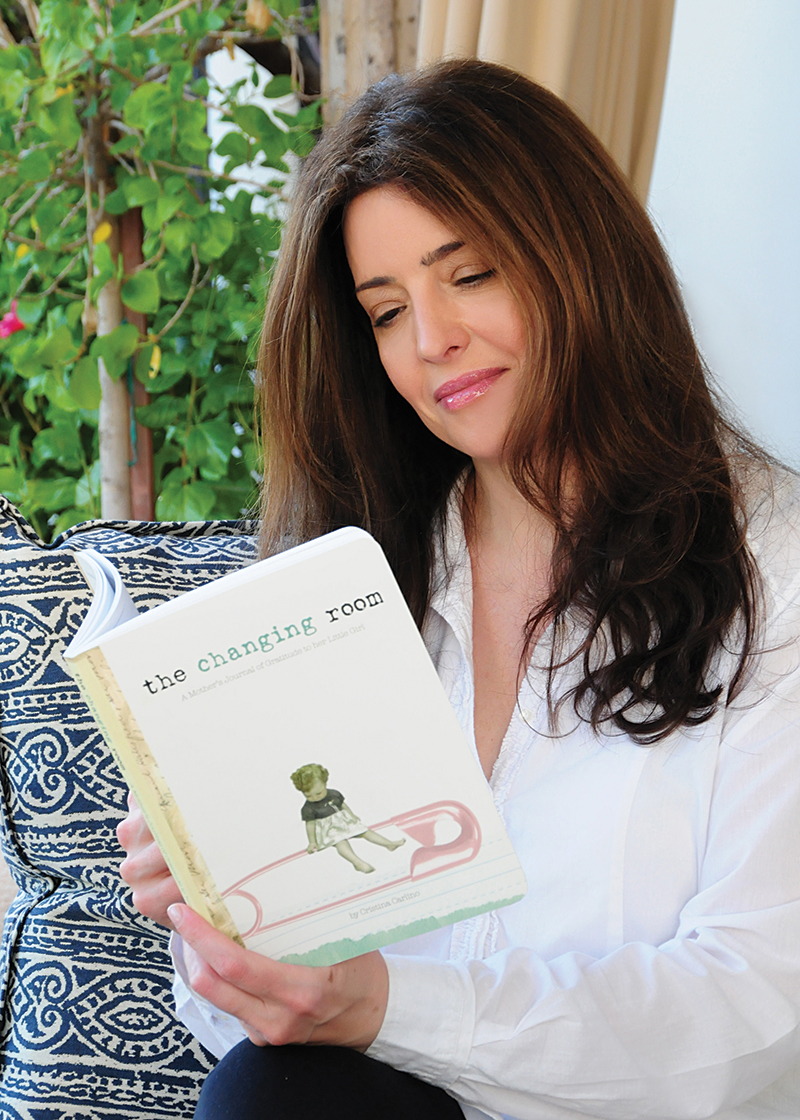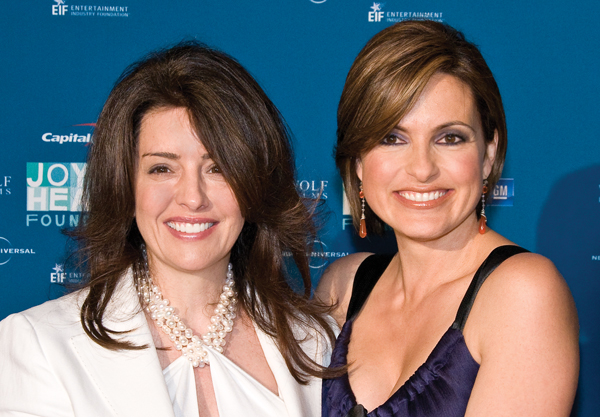

Since the earliest days of the organization, Cristina Carlino has been one of Joyful Heart's most vocal and most generous supporters. Reunion editor-at-large Peter Hermann spoke with Cristina about her commitment to the issues and her new plans for her philanthropic pursuits.
PETER HERMANN: You know you’re being honored in this issue of Reunion as the Hero of the Heart—“our hero” being one of our favorite names for you—so to start out, who were your heroes as you were growing up?
CRISTINA CARLINO: I was always attracted, quite frankly, to doctors. We’re going to go back now, but Ben Casey, Marcus Welby, Julia, all those medical dramas in the sixties and seventies. My heroes have always been people who helped people. That remains the same to this day.
PH: Why do you think you turned out to be the person you are?
CC: I would have to say that it’s a combination of things. My parents gave me the gift of faith in God and the reverence that goes with believing that life has a greater meaning. They also taught me compassion, so I think that also found its way into my DNA.
PH: Can you tell me about your journey with philosophy, about the birth of that company, where it has gone and where you are now?

CC: Prior to philosophy, I had a company called BioMedic that sold primarily to physicians, who then dispensed to their patients. But I wanted something more soulful. Philosophy was almost an anti-beauty company. It was about a woman we don’t pay much attention to in the beauty industry, so it attracted people who were committed to the environment, or global issues, or the types of issues that Joyful Heart addresses—real “feelers.”
It’s been a tremendous journey. I sold the company in 2007, and I’ve chosen to pursue things that I think are going to be more compatible with who I am today, less of a leader and more of a cheerleader for people who are doing tremendous good in this world.
PH: Not everyone sells companies and then decides to dedicate their lives to helping other people succeed. Can you tell me about how you ended up taking that path?
CC: I guess I feel called, very much the way Mariska was called to do what she’s doing. I feel like it’s something I know I can do. I am extremely clear on my limitations, which is why I choose not to sit on boards or get myself completely immersed. I try to take more of a visionary, strategic, outside role with the nonprofits I’ve worked with and ask, “What can I do with my particular set of skills to help this cause?” I just want to help people who are really putting themselves out on that limb. And I don’t put myself out on a limb, by the way. That’s why I so admire people who do.
PH: That’s where [your charity network] Project Miracle comes in, right?
CC: Exactly. It’s really just about supporting others. Whenever I see a person, I’ll think, “Okay, what product would be compatible with this person? What marketing platform makes sense for this person?” When I think of Mariska, I think of her as a mother, and that’s what the Changing Room project for Joyful Heart is about. She’s already been captured as an actress and as an activist. I wanted to capture her as a mother.
PH: You’ve talked about how you’re motivated by a desire to help people. Have there been moments on your journey that have frustrated you?
CC: I just can’t believe this is the best we can do as people in this world. Whether we’re talking about the issues that JHF covers [or] the environment, no matter where you look, we’ve got to do better. So I just say, rather than asking someone else to do better, why don’t I just do better? I’m very motivated by looking at my daughter and at all these kids coming out of her school, and I think, “This is not right. We cannot hand this world over to these kids the way it is. We can’t continue to tolerate things that are just intolerable.” We all have to do our part, and my part [is] a supporting cast member, if you will.
PH: How did your association with Joyful Heart begin?
CC: I met Mariska through a friend who said, “You’ve got to meet her, she wants to meet you. I think she would be a great match for philosophy.” I’ve never had time to watch a lot of TV, so I asked, “Mariska Hargitay? Who is that?” And then I saw her picture, and said, “Wait, that’s that woman I love!” Because I’d seen the show once a long time ago and just really connected with her character the moment I saw her on screen. So I said, “That’s who you’re talking about? Love the character, love the woman. I’m in all the way!” Then I just had to practice saying her name.
PH: What does Joyful Heart’s cause mean to you?
CC: I learned late in my life that one of my dearest friends and her sister were victims of sexual assault and abuse by a parent— a very successful parent—and both of them just had enormous struggles in their adult lives. That is a horrifying story to look back on, knowing that this was happening to one of your friends and her sister, and you had no awareness of it. The other thing that really got me is just the statistic alone. Breast cancer [affects] one out of seven women by the age of 70–75. Then you looked at this statistic, one out of three or four [women will experience sexual or domestic violence]. That means that one out of three times you’re hugging a woman, she’s been through some very, very awful things. But so often, you’re not going to hear about it from them because they’re not going to talk about it. So I wanted to help Joyful Heart open up the dialogue in a safe way.
PH: What do you envision when you picture progress?

CC: Getting the statistics out there, for starters, to let people know this is happening, and to let them know they have so many more friends who have gone through this than they realize. I would also hope it would get women to be much more compassionate with each other, because women sometimes have trouble with that. I’ve also had to speak to my daughter about all of this. I’ve had to teach my daughter things I never imagined I would teach her by seven and eight years old. I didn’t know these things growing up. I couldn’t even fathom having the conversations I’ve already had with my daughter. But we went through it. It was hard, but you have to do it. Whether you have a daughter or a son, you’re going to have to have a conversation with your children earlier than may be comfortable. I think the education piece for parents is an area where Joyful Heart can be really, really helpful.
PH: I know that you had a very powerful, life-changing, mountaintop experience. Can you talk about that?
CC: (She laughs.) Actually, I’ve had a couple. But the greatest epiphany was becoming a parent, realizing that all the things that I thought mattered don’t matter one bit. That’s what The Changing Room is about. My daughter made everything count. Whether it was the environment, or how I wanted to perceive beauty, or how I wanted to perceive assault or rape, everything changed with this child, because she gave me a view into what fragility really looks like when a child is defenseless against the things we’re talking about. ♥
Links
[1] https://www.joyfulheartfoundation.org/reunion/hero-heart-cristina-carlino
[2] https://www.joyfulheartfoundation.org/issue-no/reunion-issue-3